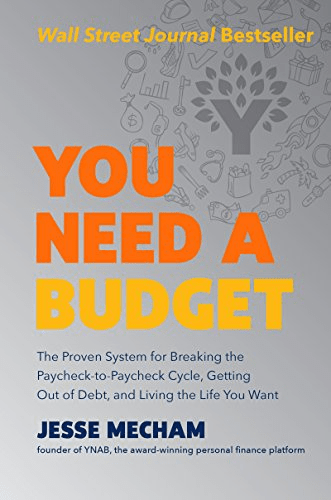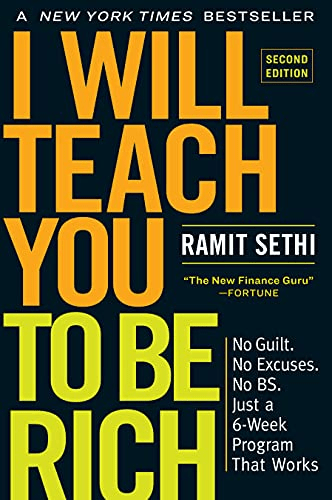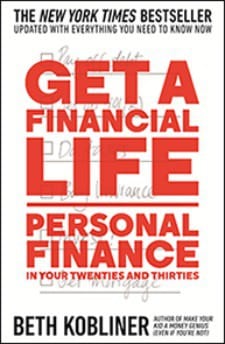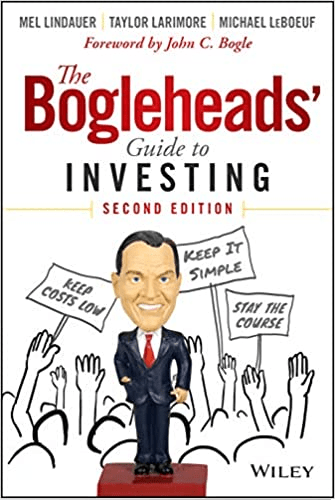Tales from the Wallet: Do You Invest in Stocks or Index Funds (or Other)?
This post may contain affiliate links and Corporette® may earn commissions for purchases made through links in this post. As an Amazon Associate, I earn from qualifying purchases.

We haven't had a Tales from the Wallet in too long — today, let's talk about what kind of investments you prefer, how you research and buy them, and general investing theory and resources. Specific questions for today: How comfortable are you investing your money (beginner, expert, or somewhere in the middle)? Do you invest your own money, or leave it to your partner or a trusted family member (like a parent) or a financial planner? If you invest it yourself, do you invest in stocks or index funds — or something else like roboinvestors like Betterment or Ellevest? Another fun question: When and how did you start investing?
For my $.02, I consider myself pretty comfortable with investing, and I do all of it for my family. (Every so often I give my husband a “state of the union” to discuss how everything is going.) I find Schwab and Vanguard both pretty easy to use as far as interface goes for buying and selling, and for ease of use I've mostly consolidated all our accounts to those two brokers. (This also makes it easier to see your asset allocation.) When I was younger, though, I definitely took a lot of advice from my father for investing, to the extent that he and I had a lot of the same mutual funds when I got started investing after college; he was much more focused on the market than I was and if he told me to sell I almost always did. I still value his advice and guidance for big moves.
In terms of what I invest in, I vastly prefer index funds for most investing, and Vanguard's low fee index funds like VTSMX (with even lower fees if you're investing enough money to get to “Admiral Shares,” which even makes for a nice little target). Still, every so often I dabble with buying individual stocks, and I've been very lucky with the individual stocks that I've bought, so I probably have a rose-colored view of investing in general.
As I mentioned above, when I got started investing in my early 20s I bought a few mutual funds, with mixed results (particularly considering the big stock bubble of the late ’90s happened just as I was getting started). I also have a bit of money invested in some of Vanguard's “Target Retirement” funds, which supposedly reallocate money as you get closer to your target retirement date so your risk/exposure decreases as you get closer to needing the money; you can also obviously rebalance your investments yourself, although it can be a PITA.
I try whenever possible to automatically invest some small amount on a monthly basis; in some years it's been as small as $25 a week. I also use Acorns for super small “set it and forget it” investing, which can be a great place to start if you really think you have NO money to invest. I've been intrigued by socially responsible investing but haven't researched it a ton — the idea being that you can buy funds where managers ONLY invest in companies that aren't, for example, polluting, using sweatshops, and other things.
I have bought bond index funds over the years, and still hold some, but I feel like I'm woefully uninformed on bonds, bond ladders, and bond index funds — it's on my to do list to research more when I get a second.
(A great “getting started investing” story from a friend of mine: For her 10th birthday, her father gave her a copy of Peter Lynch's book (affiliate link) and a “loan” of $2,000 to invest, with the promise that she had the rest of her life to pay him back. She bought a lot of what she knew as a 10-year-old — Gap, Nintendo, and so forth — and made a killing. I got my start with a similar amount as a college graduation gift…)
Over to you, readers: When did YOU get started investing? Do you invest in stocks or index funds (or other)? For those of you in company 401K plans with limited investment options, how do you research your options (and how often do you reassess)?
(If you're more on the beginner side of things, do check out our money roadmap for a general checklist for your personal finance journey — as well as our recent post on the best financial books for beginners.)
These are some of our latest favorite financial books for beginners:





Social media images via Deposit Photos / ra2studio.


Oh, I’m very curious to see what other people say! I’m just starting out and I can’t figure out on what rationale to allocate my money between index funds, my TSP, a 529 for the kiddo, etc etc etc. The only thing I’m sure about is that I have ZERO interest in becoming a hobby trader.
I’m a personal finance nerd (I read personal finance books for fun), and in a different lifetime could have been a financial advisor, so looking forward to hearing other people’s thoughts on this one!
My strategy has definitely evolved over the years. In college when I was first starting out investing, I bought individual stocks of companies whose products liked (Starbucks, Apple, Disney, that sort of thing). After reading some books on investing, I eventually realized that I had no expertise in that field and was much happier just buying index funds so I didn’t need to stress about how a company was doing and if I should sell.
These days I’d say I’m very comfortable with the investing I do in index funds. I do this for our family and rebalance twice a year, and give my husband updates when I do so. I have a target allocation between stocks (domestic and foreign), bonds, and real estate. Given all of our various accounts (401k, IRAs, individual), I keep a giant spreadsheet to keep track of how the money is allocated across our entire portfolio. Most of our individual accounts are in Fidelity because I started with them years ago and love their customer service, but I’m also a huge fan of the low-cost Vanguard index funds.
In terms of putting money into each account, every year we fully fund our 401ks. If we have excess money to invest after that, we split it between a 529 account and individual investment accounts. I don’t consider the 529 account to be part of our overall portfolio, though, as that money is earmarked for college rather than our retirement.
I was a student throughout my 20’s, and lived on a shoestring. My parents gave me a small amount of $$ to invest in an IRA when I was 21 and for a few years after. I started with Fidelity because that is what they used. I bought a small hodgepodge of funds. Amazingly, they have beat the market every year, so I let that money ride.
But once I started working, I went the Vanguard ETF index fund admiral shares way, with my IRA in a target date fund. After maxing out my retirement, I invested more in the index funds, bought a small amount of Apple and Tesla and will let it ride. For fun. That has done fine. And finally, once I had more $ I bought Berkshire Hathaway, which is the last individual “stock” I will buy. It has done very well.
My older brother is the investing genius. A Silicon Valley type. He went to college for free + stipend on an academic scholarship at a very good school, but turned down Princeton (pricey, no scholarship). First smart step. He was an RA in college and invested his earnings. He knows tech well, and slowly invested in stocks he had researched and understood well (good product, reliable company, underserved market). He lives simply (as simply as you can in the Bay Area – owns his home in an excellent school district with kids) and invests aggressively. Multi millionaire at 50. And makes a lot less than big law.
My retirement account is in a target date fund and my extra investments are in index funds. I originally started investing in index funds since it was an easy way to avoid the professional responsibility conflicts of individual stocks, and have kept it since I know that I’m not going to spend the time necessary to learn all about a company and figure out when to buy or sell.
I’m also very curious to hear readers’ thoughts on this one. My husband and I both fully fund our 401ks, through our employer. I had been investing in individual stocks through a brokerage account that I began when I was about 18 or so. When I got into consulting I had to sell most of them and switch to mutual funds because of the strict independence rules we have to follow – though we’re drawing all of that down now to pay for a kitchen renovation. That was a scary decision, but we figured the brokerage account was earmarked specifically for medium-term needs and not retirement, and we don’t want to take out a HELOC or refinance, so there you go.
Typically we also had an additional portion of our take home pay marked to go into that brokerage account, but we recently made the decision to aggressively pay down our collective student loan debt (law school and grad school loans, bleh) so that money is going into additional principle payments for the next few years. Once we have those paid off, we’ll be able to start funding our kiddo’s 529 and get back into mutual funds again (though I think I will try my hand at doing that by myself instead of through a broker).
Index funds. I don’t have the time or risk tolerance to investigate individual stocks. I’m still very confused about how to allocate across different savings (retirement, education, cash) but we are sure that we have to save like the dickens if we want to send the kids to college..
I’m a big fan of Vanguard’s LifeStrategy Funds (https://investor.vanguard.com/mutual-funds/lifestrategy/#/), which are basically diversified bundled ETFs, targeted to the amount of risk that you want to take on and how long from now you think that you’ll need the money. So I have the money that I’m mentally allotting to the “buy a house in a few years” in their lower-risk options (mostly bonds) and the money that I’m mentally allotting as overflow retirement money in their higher-risk options. For those who feel more confident about investing it’s very possible to replicate the various allocations with ETFs, but for someone like me, who was very nervous to start “real” investing, these provided an easy entry with really low fees. And now, despite the fact that I feel more confident with investing, I still find that these are the simplest way for me to invest in a diversified way.
I just do Vanguard index funds for all accounts. I think they are all admiral shares. I’ve maxed out my 401k since I graduated law school. I also contributed maximum amount into a 529 plan for 1 child to not hit the gift tax (currently $15k per year) which got to $100,000 by age 7 and I’m now starting all over with a baby on the way; I ignore home equity and 529 plan from my net worth calculations. I also think of my husband’s accounts and my accounts separately since I have a hard time knowing what would happen if we were to divorce or if he dies first, since it’s his second marriage and he has older young adult children from his first marriage. I just have defaulted to planning for retirement as if I’m going to be single, and anything he adds is great (he’s got more money and a higher salary, but I don’t have any way of knowing what the future will bring and find it easier to sleep at night if I plan separately).
I invest in individual stocks, bonds, money market instruments and real estate. personal finance is my jam and if I wasn’t a lawyer I’d probably be in finance!